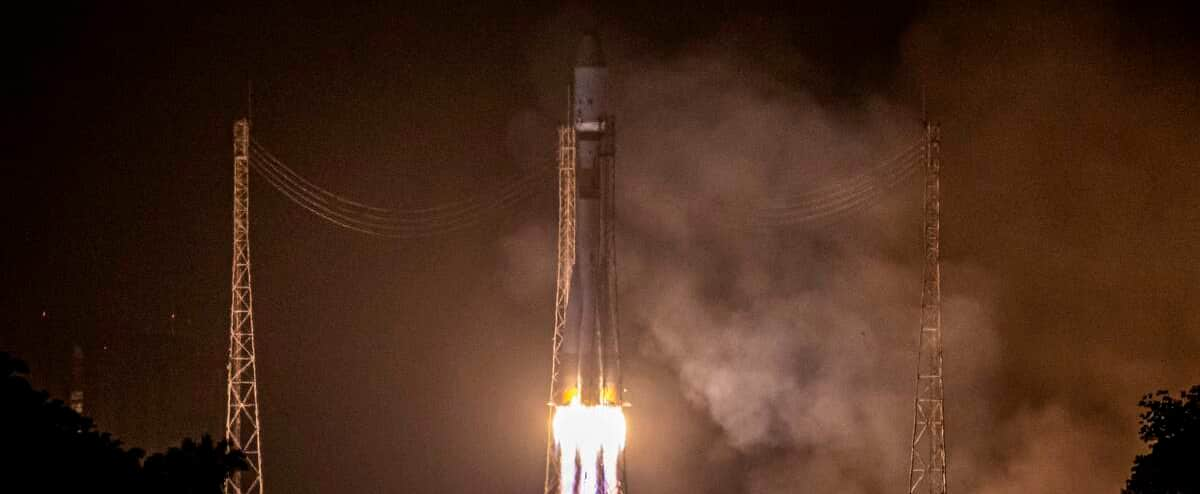A Soyuz rocket with two Russian cosmonauts and an American astronaut on board docked with the International Space Station (ISS) on Friday, a rare collaboration amid a period of tension between Moscow and Washington.
• Also read: In Baikonur, the rise of space tourism for wealthy Russians
The rocket lifted off as planned at 15:44 GMT into a dark night sky from Russia’s Baikonur Cosmodrome in Kazakhstan, with a crew on board including veteran Russian cosmonaut Oleg Kononenko and his comrade Nikolai Tchoub, as well as NASA astronaut Loral O’Hara. The latter two make their first flight into space.
It reached the ISS three hours later, the Russian space agency said in a press release.

Photo AFP
This launch comes less than a month after the loss of Russia’s Luna-25 lunar probe, which crashed on the moon in August, a failure that is a reminder of the difficulties that the Russian space sector has faced for years between a lack of funding and corruption scandals .
“It is a very special moment and a very nice feeling to be part of something that is bigger than us and that has brought so many people together. I am excited about this mission,” Ms. O’Hara, 40, said at a news conference in Baikonur on Thursday.
“The atmosphere is good, the crew is ready to carry out all the tasks assigned to them,” said Nikolai Tchoub, 39 years old.
The three astronauts will succeed Russians Sergei Prokopyev and Dmitri Peteline and American Frank Rubio, who boarded the ISS a year ago.
Their mission had been extended due to damage to their return ship, the Soyuz MS-22, which suffered a spectacular leak while docking with the ISS in December 2022, which Moscow said was caused by the impact of a micrometeorite.
The Russian space agency therefore decided that use would only be possible in an emergency and decided to send the MS-23 spacecraft as a replacement.
The space sector is one of the rare areas where cooperation between Russia and the United States remains amid high tensions due to the conflict in Ukraine.
American Loral O’Hara said on Thursday that the ISS was “a symbol of peace and cooperation.”
“Unlike what happens on Earth (…), where nations often don’t get along, up there we get along well, we understand each other and we are very sensitive about our relationships.” We always look out for each other” added the 59-year-old Mr. Kononenko.

